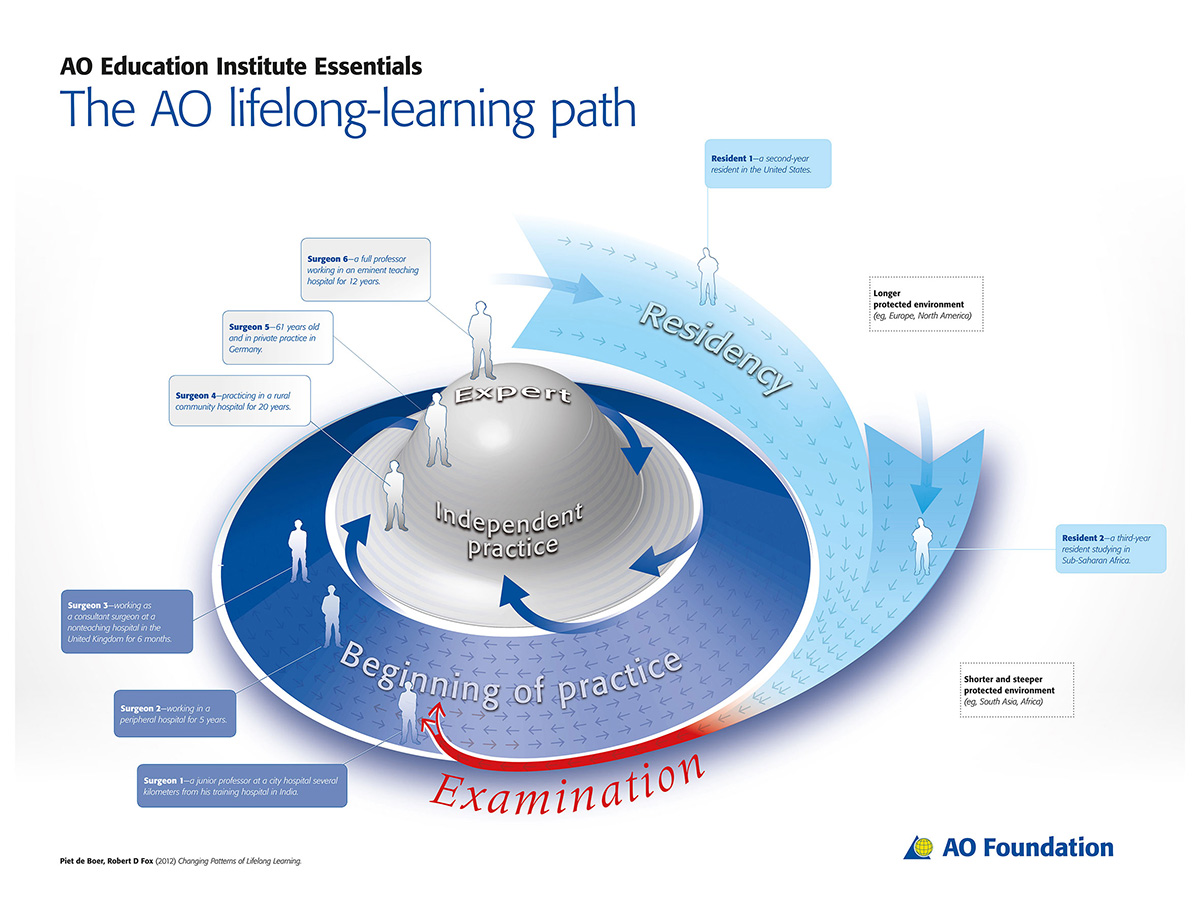The AO curriculum development process
The 7 Principles
The 7 Principles of Education as defined by the AO are the foundation of high-quality education. Our Faculty Education programs promote the application of these principles as a basis for all educational planning and delivery.
Educational outcomes
The aim of learning is to improve clinical performance. Quality education relies on the application of teaching methods appropriate to desired outcomes.
Learning in this sense is the assimilation of knowledge into practice. The four levels of outcomes, as specified by Miller and by Moore et al, 2009, helps the AO Education Institute to define and measure educational outcomes. Learners who can successfully demonstrate newly acquired knowledge in an educational setting will be more likely to successfully apply it to their clinical setting.
Backward planning
In order to build education that directly impacts patient health, AO Education Institute follows a backward planning process as the first step in curriculum development. This asks our surgeon planning committee members to think about the patient problems they address and the performance that these problems demand of the surgeon. Out of these initial lists, essential competencies (what should the physician be able to do) are generated. On the basis of these competencies, a given educational activity is developed, which in turn addresses learning outcomes derived from the competencies. These educational outcomes are targeted to directly impact corresponding clinical performance and so improve patient health in the relevant areas.
Competency-based education
Competencies (abilities) are a combination of the specific knowledge, skills, and attitudes that enable surgeons and healthcare professionals to perform effectively in their practice setting and meet the standards of their professions. The Curriculum Development team follows the backward planning process (see above) to help the planning committees to develop a set of competencies for various clinical areas.
The competencies are central to all educational planning processes, and enable the optimization of the impact of curricula and individual learning activities. The four interdependent aspects of our work—curriculum development, resource development, assessment and evaluation, and faculty development—keep the competencies at the forefront at all times.
Evaluation and assessments
At the AO, the evaluation of educational activities and curricula and the assessment of learners is a key component of our competency-based approach. We evaluate our various teaching methods, the appropriateness of our content and materials, and the impact of the educational activities on meeting needs and improving patient care. Our processes identify what works well and what we can improve. Evaluation and assessment is not just for the AO faculty and leadership, it also provides and gathers feedback to and from participants, both in clinical education and in faculty development.
Lifelong learning
It is never too soon or too late to learn—this is one of AO's driving philosophies with the aim of enabling physicians to acquire the specific knowledge, skills, and attitudes that progressively fit their needs at all phases of their professional development, from residency through to all levels of continuing professional development.


